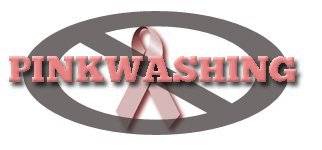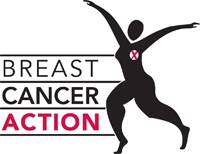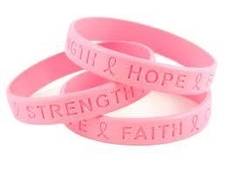Like many of you, I saw the Susan G. Komen for the Cure public relations debacle unfold in the news last week. People responded via social media with sharp disgust and flash point anger for Komen’s politically-based, grant funding decision. Despite the specious explanations and the subsequent resignation of Vice President Karen Handel, it is apparent that this is an organization that has veered far from its stated goal:“for the cure.” Writing as a women with breast cancer, I’m dismayed and sad, but at the same time, I’m glad the public has finally noticed that all is not well with this organization.

Many in the breast cancer community have felt uneasy about Komen’s practices for some time. One offense is rampant “pinkwashing,” the term for co-opting the medical condition as a marketing hook for products that ironically contain carcinogens. Partnering with junk food companies and phthalate-laden cosmetic companies (see the list here), Komen has no qualms about the products it allows the pink ribbon to grace. In fact, the organization got in the game itself by creating a perfume called “Promise Me” that, according to the group Breast Cancer Action, contains two suspected carcinogens. But why would Komen care about that? It denies the link between environmental poisons and cancer.
“Promise Me” also illustrates another offense: Komen is light on the percentage of funds going towards research. The perfume’s $59 price has a mere $2 going to actually finding the cure (uneasypink.com). Overall, only 21% of Komen’s total budget goes towards cancer research (www.cancerculturenow.blogspot.com).
From the CEO’s salary to suing other breast cancer charities for using the phrase “for the cure,” Komen has many breast cancer patients perplexed about who the charity is actually serving. One blogger posted about trying to get direct help, only to be given a phone number that is never answered. Others say that once diagnosed, the marketing efforts towards them intensified (cancerfree2b.com; dinoiafamily.typepad.com).
Perhaps the worst thing I’ve heard about Komen is that they have shunned funding for a preventative vaccine that may eliminate 95% of all breast cancers. Call me cynical, but could it be that they are avoiding putting themselves out of business?
So, what do we do? Following last week’s revelation, many people are redirecting their money to Planned Parenthood, including musicians from the Decemberists to Melissa Manchester. And that is a fine thing to do — people of all economic backgrounds deserve clinical screenings. If it is within your political belief to do so, give to them. But, what if you also want your money to fund research? My recommendation is the National Breast Cancer Coalition and my reason is personal.
 I have a virulent, aggressive kind of cancer. Patients in my situation are more likely to have cancer recurrences. Fortunately for me, in 1998, a drug called Herceptin came to market that targets what makes this cancer so fierce. Which breast cancer organization do we have to thank? Not Komen. The National Breast Cancer Coalition helped support this drug’s development. Visit their website and their dedication to finding a cure will be apparent.
I have a virulent, aggressive kind of cancer. Patients in my situation are more likely to have cancer recurrences. Fortunately for me, in 1998, a drug called Herceptin came to market that targets what makes this cancer so fierce. Which breast cancer organization do we have to thank? Not Komen. The National Breast Cancer Coalition helped support this drug’s development. Visit their website and their dedication to finding a cure will be apparent.
 My second favorite organization, Breast Cancer Action, has been tracking pinkwashing since 2002 via their “Think before you pink” project. Contrasted with Komen, Breast Cancer Action’s core belief that “we cannot be bought” is a breath of fresh air.
My second favorite organization, Breast Cancer Action, has been tracking pinkwashing since 2002 via their “Think before you pink” project. Contrasted with Komen, Breast Cancer Action’s core belief that “we cannot be bought” is a breath of fresh air.
Sunlight is the best disinfectant and perhaps, a good motivator. Books such as Pink Ribbons Inc., (which has a companion documentary) and Pink Ribbon Blues ask the question of what are we accomplishing with these campaigns.
Check out tweets to #takingbackthepink and the Facebook page Pinkwashing Hall of Shame to see how the Komen organization and others view this nation’s 2.6 million breast cancer survivors as a target market.
 Awareness is just the beginning. We have to change what we accept as women’s health in this country. Medical sociologist Gayle Sulik states, “Pink ribbon paraphernalia saturate shopping malls, billboards, magazines, television, and other entertainment venues. The pervasiveness of the pink ribbon campaign leads many people to believe that the fight against breast cancer is progressing, when in truth it’s barely begun.”
Awareness is just the beginning. We have to change what we accept as women’s health in this country. Medical sociologist Gayle Sulik states, “Pink ribbon paraphernalia saturate shopping malls, billboards, magazines, television, and other entertainment venues. The pervasiveness of the pink ribbon campaign leads many people to believe that the fight against breast cancer is progressing, when in truth it’s barely begun.”
The shocking fact is that in our country, despite Komen’s efforts to color everything pink, the incidence of breast cancer is still 1 in 8. We have to do better.
I purposely did not use the word “abortion” in this article. Should you comment, please honor me by refraining from using this space as a forum for that discussion.








